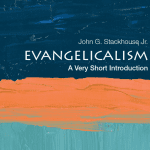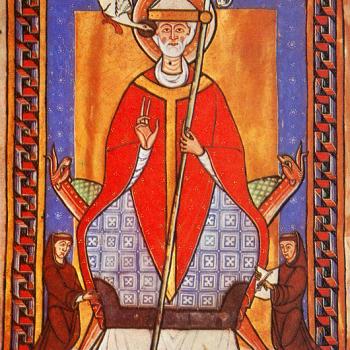Tinsel halos and cardboard wings, bathrobes and blankets and staffs, giggles, somewhat out-of-tune singing, and general chaos around a manger: we can likely all imagine the scene in our heads if we’ve ever seen a nativity play, whether in person or in a movie. Christmas plays or pageants are a staple of the Christmas season, today often performed by the young people of a church or community. And perhaps there is a reason that plays are particularly fitting during Advent, as we prepare for Christmas. As Tish Harrison Warren puts it in her book on the season of Advent, “We know that Christ has come, and yet the season of Advent calls us out of our time-bound moment to remember and perform the whole drama of Scripture. Through the liturgical calendar we don’t merely retell the story of the gospel: we enter it. In this was the church calendar is like immersive theater.” (Ch. 1 in Advent: The Season of Hope).

This idea of participating in the story of Scripture through drama is certainly not unique to our modern moment, and the idea of dramatizing the Christmas story in a nativity play certainly isn’t new. In fact, some of the earliest religious plays in western Europe grew out of liturgical dramas meant to help the church visualize and understand the most important moments in the Gospel narrative. Some medieval plays aligned exactly with the liturgical calendar; early medieval liturgical dramas like Quem Queritis solemnized Easter, while the Officium Pastorum was performed on Christmas Day, often at the end of the midnight mass. But Christmas plays weren’t always performed just at Christmas. Other medieval Christmas plays, however, were performed in the middle of the summer (a sort of early Christmas in July, if you will), as part of the Corpus Christi observations in the city of York.
The York Corpus Christi Cycle Plays (also known as the York Mystery Plays) are a group of 48 medieval dramas that were performed throughout the streets of the city of York by the city’s medieval guilds. As part of the religious observation of the city, these plays were a way to help laity know and understand the story of the Gospel, from creation to the last judgment. Staged on wagons that could be moved throughout the city, the performance of the plays would have taken an entire day and would have been an occasion for community festivity as well as religious education. A whole series of plays in the cycle have to do with the events of the Christmas season, starting with Play 12, “The Annunciation to Mary and the Visitation” and continuing through Play 19, “The Massacre of the Innocents” (perhaps not the play you anticipated learning about today!). From these plays, medieval audiences would have certainly gained an understanding of the outline of the Christmas story. But in looking closer, I think a devotional lesson for both medieval audiences and us today becomes clear.
For medieval audiences, these plays repeatedly emphasized that joy– true joy– was only found through relationship with God, whether before the Fall or, after the Fall, through the presence of Christ. In fact, in the plays between the fall and expulsion of mankind from the Garden of Eden and the visitation of Mary, the characters from the biblical story do not usually express having joy. They lament their loss of joy, or the sorrow of this earth, and God promises them joy in future in heaven. But it is not until the birth of Christ that joy and mirth return as a key framing emotion within the plays.
In Mary’s response to the angel’s message to her in Play 12, for example, after receiving the news that God will become flesh through the child she carries, Mary declares “my soul shall make praise/unto that Lord so true/ and my spirit will make joy always/ in God that is my health.” (Play 12, lines 250-254). In Play 17, “The Purification of the Virgin,” after hearing that the messiah has been born and that he will get to meet the child, Simeon exclaims: “Now certainly then should my game begin/ And I might see him, tell of him,/ That one that is born without sin,/ And for mankind man’s mirth to restore.” (Play 17, lines 103-106). Other expressions of joy seem to be accompanied with movement and song, or at least to encourage the connection between joy and procession. Later in the same play, Simeon calls for “mirth by street and by strands/ on earth,” for a joyous procession to celebrate the presence of the Christ (Play 17, lines 380-385). The shepherds take up a similar theme in Play 15, processing in joyous fashion to and from the manger, going forth “him to honor/ and make mirth and melody/ with song to seek our savior.” (Play 15, lines 83-85). As these plays reenacted the events of the Nativity, they called the audience into joyful procession towards Christ.
I think, in this season of expectation and waiting, there is a lesson here for us in these medieval texts. Are we likewise finding our joy in Christ? Are we looking with expectancy and hope towards the promised restoration of our relationship with God, or are we getting distracted by the games and festivities and gifts of this earthly Christmas season? Tish Harrison Warren reminds us that “we begin our Christian year in waiting. We do not begin with our own frenetic effort or energy . . . we begin in a place of yearning. We wait for our king to come . . . We prepare for the joy of Christmas by waiting on the dark streets of Bethlehem, our eyes straining to glimpse the dawning of that everlasting light” (Ch. 1 in Advent: The Season of Hope). But as we wait for Christmas, our medieval brothers and sisters remind us that we wait joyfully, because we wait with our eyes fixed on Christ. In this season of busyness and festivity (and sometimes despair and sadness at what has been lost or broken in our lives), let us not lose sight of joy.













